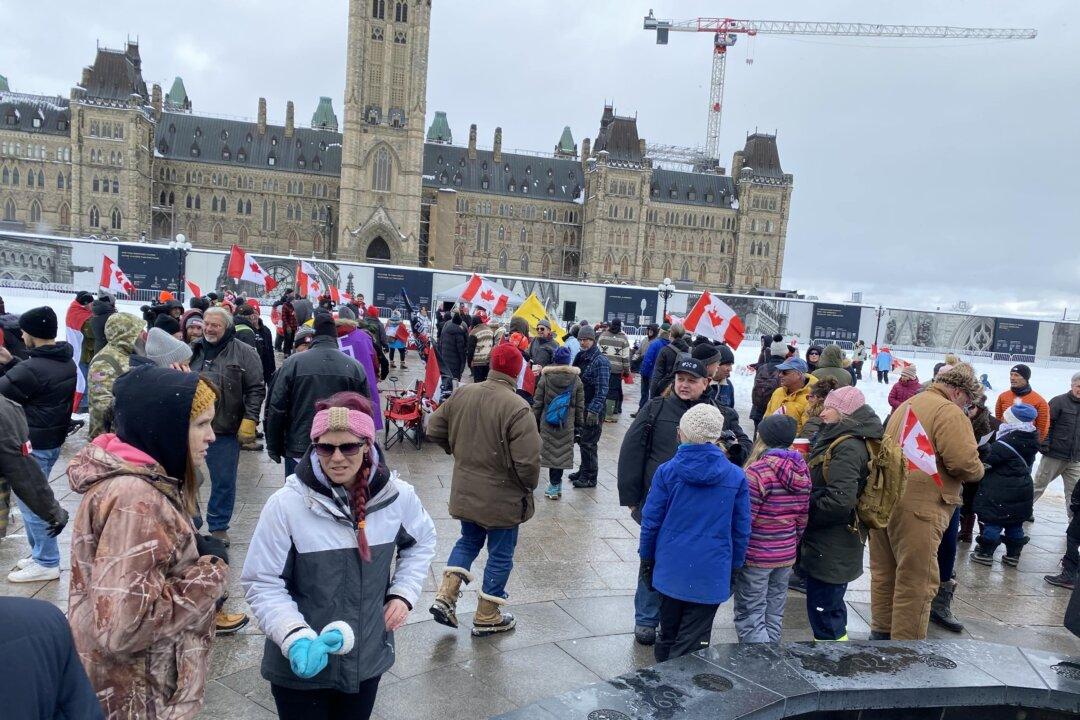The one-year anniversary of the Trudeau government’s invocation of the Emergencies Act to clear the Freedom Convoy protest saw a return of protesters to the nation’s capital, but in much smaller numbers than the thousands in Ottawa in 2022.
Only about one dozen protesters came to Parliament Hill on Feb. 14, outnumbered by police and bylaw officers whose numbers were increased in case of a possible convoy reunion.





